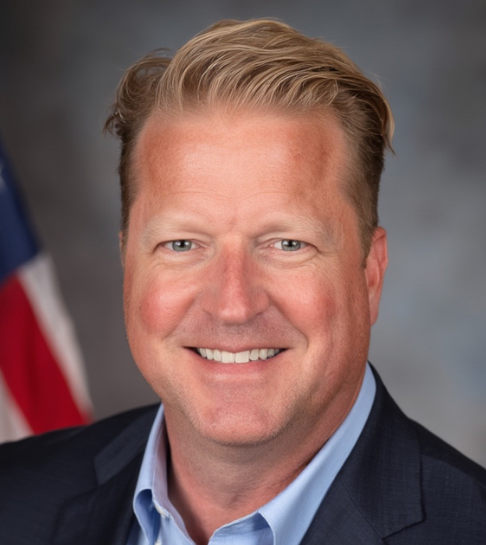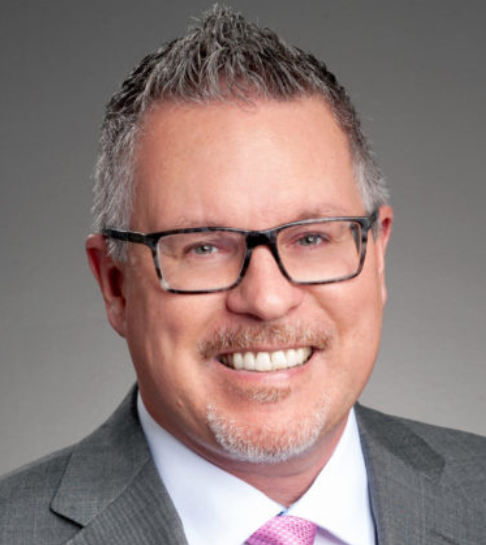Advisory Board
The Operations Science Institute’s Advisory Board is composed of individuals who are both familiar with operations science and have demonstrated success in application of the concepts in their careers. OSI’s advisory board members provide valuable contributions to the institute. Their ideas and experience help advance the development, understanding, and application of operations science concepts throughout the world.
Mission and Vision
Our mission is to promote, teach, and coach application of operations science to
- eliminate widespread confusion about improving performance
- help companies and individuals improve performance more quickly, and
- sustain those improvements
This doesn’t require expensive technology or an army of consultants – just a more innovative way of thinking about and solving problems. Operations science makes your current workforce more productive using your existing technology.
The Operations Science Institute aims to become a global leader in advancing operations science as a transformative discipline, where organizations across all industries adopt science-based strategies and data-driven decision-making to predictably improve their operations leadership and project leadership. We provide comprehensive professional development that addresses a critical gap in the field between excessively complex academic or technical approaches and overly simple, “best practice” approaches. We envision a world where operational excellence is the norm and organizations achieve sustained success with science-based operations leadership frameworks and professional development resources tailored to their existing resources and technology.
Value Proposition
Improved Efficiency and Productivity
Operations science enables traditional manufacturing organizations to reduce cycle time, optimize inventory, cost, and batch sizes, and increase throughput and on-time delivery. For service organizations such as healthcare and maintenance, repair, and overhaul (MRO), operations science provides the keys to better capacity management, shorter response times, lower costs, higher service, and better variability management. For project management, operations science ensures better project delivery through more effective task planning and control, shortest desirable completion times, lowest cost, and highest on-time completion. In all cases, the adoption of operations science reduces confusion and stress caused by the chaos of poor control and self-inflicted inefficiencies
Enhanced Customer Satisfaction
Operations science enables organizations to deliver superior products, services, and projects to their customers. The most effective customer solutions involve not just delivery of products, services, and projects but a practical, science-based collaboration with customers to align incentives and optimize performance across the supply chain. Such efforts provide better results than could be achieved if either the customer or supplier optimized solely for their own benefit
Education Tailored for Individual Context
Each organization is unique, with its own operational complexities and challenges. The discipline offers a customizable approach to professional development, allowing organizations to adapt the principles to their peoples’ specific context and requirements. This ensures that professional development programs are relevant, effective, and repeatable, leading to sustainable improvements
Operations Science Training and Coaching
The institute provides unsurpassed experience in the application of operations science to inspire, engage, and develop any organization’s employees. With an empathetic approach born of years in the trenches, operations science concepts are taught and applied in the context of a business’ unique challenges and opportunities by OSI’s experts. Whether addressing local process throughput, cycle time or on-time delivery issues, tackling project schedule and cost challenges, assessing a global supply chain, or defining new processes and practices for a merger or acquisition, the Operations Science Institute addresses your concerns in a practical, science-based approach to achieve success.

Managing Director, Operations Science Institute
Background of the Operations Science Institute
The Operations Science Institute sprang out of decades of work applying operations science concepts across companies and industries worldwide.
The Operations Science Institute’s mission is to build and expand the concepts as a general science. The goal is elimination of widespread confusion in operations, its accompanying waste and stress and, thereby, enable quick, sustained success for organizations. See this short video for more description of this very real problem of operations management confusion and its solution. Most importantly, we aim to provide easy access to training and clear understanding of the concepts for the resolution of current operations challenges and for the benefit of future generations. Finally, we want to establish a community effort to accomplish those aims.
The institute does not sell operations analysis and control software so we can objectively comment on such software. Decades of experience has shown that one can provide an organization’s employees with all the software and theory the world offers, but people must internalize, through education and training, an understanding of operations science for their own work environments to achieve sustainable success in improving service and productivity. The idea is the same as is contained in the proverb “If you give a person a fish, you feed them for a day. If you teach a person to fish, you feed them for a lifetime.”
The ideas started in Northwestern University’s Master of Management in Manufacturing (MMM) program in the late 1980s and early 1990s. Two Industrial Engineering PhDs, Mark Spearman and Wally Hopp, were leaders of the program at that time.
Both Spearman and Hopp had a bachelor’s degree in physics, a love of physics, and their physics mindset provided them a different view on manufacturing. Rather than working primarily from complex mathematical formulations to analyze operations as is typical in the field of operations research, or subscribing to buzzword initiatives that are too simplistic, they wondered about determining and describing fundamental laws and relationships that govern the behavior of operations much as the laws of physics, e.g., E = mc2, govern the universe. Their goal was to provide operations workers, managers, and executives with accurate understanding and intuition about operations behavior to ensure good decision-making.
The result of this work was the award-winning textbook, Factory Physics. It wasn’t that Spearman and Hopp discovered every law and relationship described in Factory Physics. Many relationships, such as Little’s law, had been well established. However, they did add a powerful quantitative and qualitative framework and new discoveries. Spearman and Hopp encouraged people to look at manufacturing from a comprehensive, scientific set of natural behaviors that could be predictably managed.
Over the next 30 years, along with some of Hopp and Spearman’s students from Northwestern (including Jeff Bell, Bill Fierle, Mark Graban and Ed Pound), the concepts have been continually developed through research and application in industry. This includes work with contemporary technology and initiatives such as artificial intelligence, internet of things, digital technology, data science, lean, agile, six sigma, and theory of constraints.
Spearman and Pound’s work at Factory Physics Inc. was moderately successful at promoting the concepts. However, there was often pushback whenever the concepts were introduced in an organization that wasn’t a factory. Also, people typically thought physics was cool, but they also thought it was hard and intimidating.
In 2018, frustrated with the lack of widespread adoption, Pound was searching for a more engaging description and did a Google search on the term “operations science.” To his surprise, there were very few references. As he describes it, “I related this find to my daughter who works in digital media and her advice was, ‘Dad, you should capture that.’ I quickly called Eric (Outley, FPI Director of Software Development) and asked him to put an operations science menu item on the Factory Physics website and create an operations science webpage. It was like there was a big blank space on the internet and we were the first ones there.” From that point, the term has been used for the general science describing operations behavior. Later in 2018, Factory Physics, Inc. was acquired by Strategic Project Solutions, Inc.
In March 2021, Spearman and Hopp published The Case for a Unified Science of Operations in the Production and Operations Management Journal (Vol. 30, No. 3, pp. 802 – 814). The general applicability and practicality of operations science have been re-enforced through demonstrated success in widely varying industries including manufacturing, healthcare, ship repair, product development, aviation maintenance repair and overhaul, and construction, to name a few. As a general science, operations science concepts apply across all industries and organizations. It wouldn’t be very good science if it didn’t.
In 2021, Pound founded the Operations Science Institute to advance operations science in operations management with the goal of eliminating chaos, stress, and waste caused by lack of awareness and understanding of the science governing operations.
The original Factory Physics (Hopp and Spearman) textbook was followed by Supply Chain Science (Hopp) and then Factory Physics for Managers (Pound, Spearman, and Bell). Operations Science Applied (Spearman, Bell and Pound) is scheduled for publication in early 2026.
People in operations enjoy providing services, making things or building things, but do not enjoy the stress and frustration that comes with poorly managed operations. At the end of the day, they want to go home to their family and friends energized by their work, not burdened with work-related anxiety and worry. We work to make that a reality.
Still Have Questions?












